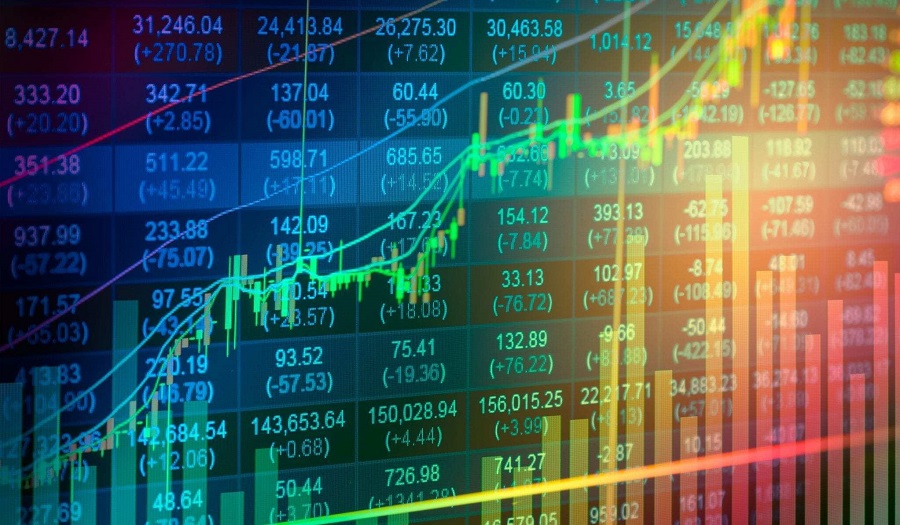RIO DE JANEIRO, BRAZIL – The Ibovespa fluctuated between losses and gains until the last minute of trading and closed Friday up. The Brazilian Stock Exchange index, which rose over 2% in the morning and neared 107,000 points, followed the New York indexes and traded in negative territory twice.
In the United States, the Stock Exchanges plummeted with the prospect of stimulus withdrawal and interest rate hikes, at a time when labor market data is disappointing.

“The Brazilian stock market was already well behind the world average. In general, prices are good and we are in a buying zone. Foreign investors are coming in, while local investors are selling due to risk aversion, going for fixed income. Although the scenario is very uncertain and challenging, the Brazilian Stock Exchange has good opportunities of profitable and cheap companies”, says Ivest Consultancy’s Danilo Luna.
Despite the volatility of yesterday’s session, Ibovespa accumulated gains in the week, boosted by the highest daily rise of the year, 3.6%, registered on Thursday’s session.
St. Louis Federal Reserve President James Bullard’s statement impacted business. He advocated tightening monetary policy in the United States, citing high inflation, in addition to “strong” economic growth and job creation tending to grow.
Despite this outlook, U.S. labor market data brought worse-than-expected figures. The country created 210,000 jobs in October, according to the payroll, released on Friday. The median of Refinitiv’s survey with economists projected the creation of 550,000 jobs. Unemployment rate remained stable at 4.6%.
“The data suggest that the labor market remains tight, although there is worse progress in returning payrolls to their pre-pandemic level,” says BRA economist Alexsandro Nishimura.
In Brazil, industrial production for the month of October was the highlight, which also frustrated expectations. The indicator fell 0.6% in October compared to September, the 5th consecutive negative result, and posted a 7.8% drop compared to October 2020. The expectation of analysts heard by Refinitiv was for a slight increase of 0.6% in the monthly comparison, and a 5% drop in the annual comparison.
Investors continue to monitor news about the Omicron variant of the coronavirus and, in Brazil, the Court-ordered debt PEC, passed by the Senate and now back in the Chamber of Deputies because the text has been amended.
According to Arko Device consultancy, the PEC’s partial enactment may force the government to pay court-ordered debts in full in 2022. Senators drafted the PEC so as to tie the new fiscal room to social spending. As it was drafted, the Chamber, as desired by its president Arthur Lira, will find it difficult to reformulate.
The PEC would be enacted without the provision of a limit for the payment of judicial debts, and the government would be required to pay them in full in 2022 – the reason for the PEC in the first place.
Although it has passed through the Senate, the debate on the subject in the Chamber of Deputies is likely to affect the market next week.
Ibovespa closed the day up 0.58% at 105,069 points. The traded volume in yesterday’s session was R$33.5 (US$6) billion. In the week, the index accumulated a rise of 2.6%. The Ibovespa futures for December traded up 0.91% at 105,730 points.
The commercial dollar closed up 0.35%, at R$5.679 to buy and R$5.680 to sell. In the week, the American currency accumulated a rise of 1.48%. The future dollar maturing in January 2022 was up 0.09% to R$ 5.685, in the last business of the day.
In the extended session of the futures interest market, the DI for January 2023 fell 24 basis points to 11.30%; the DI for January 2025 dropped 29 basis points to 10.89%; and the DI for January 2027 fell 21 basis points to 10.94%.
In New York, Stock Exchanges began the day bullish and inverted the direction, retreating sharply. The Dow Jones closed down 0.17% at 34,579 points; the S&P fell 0.85% at 4,538 points; and the Nasdaq closed down 1.92% at 15,085 points.
In Europe, Stock Markets also reversed course and closed down. The Stoxx 600 index, which gathers the shares of 600 companies from all major sectors in 17 European countries, fell 0.57%.
Oil prices also turned around. The WTI barrel fell 0.72%, to US$66.04, in the extended session. Brent crude traded flat, down slightly by 0.01%, at US$69.66.

